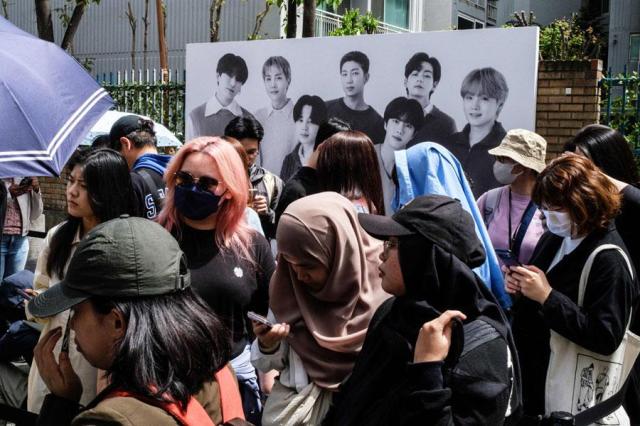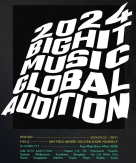
SEOUL, May 07 (AJU PRESS) - K-pop giant JYP Entertainment recently launched VCHA, an all-female idol group composed entirely of members from Canada and the United States, who had passed auditions held in North America. The band says its members' backgrounds include Korean, white, Latino, Black, Vietnamese and Hmong ancestries.
The once-novel idea of a K-pop group without Korean members, which caught the attention of the BBC and CNN, now seems on the brink of becoming the norm.
Inspired by the evolving face of K-pop, I have been tracking global K-pop auditions in Canada since 2023. In the first half of 2023, Canada was the eighth-largest K-pop market in the world.
Between February and April 2024, I visited audition venues: once in Vancouver in February, and twice in Toronto in March and then April. I observed increasing cultural and ethnic diversity among hopefuls aspiring to follow in the footsteps of K-pop groups like BTS, BLACKPINK or Canadian K-pop artists like Toronto-born Keeho in the band P1Harmony.
Boundaries that have traditionally defined K-pop, contributing billions of dollars to Korea's economy annually, and captured global attention are blurring.
While BTS's leader RM defined K-pop as a cultural "premium label" in a 2023 interview, the term 'K' might be losing its distinctiveness – prompting questions about what it might encompass in the future.
Beyond linguistic borders
Outside the audition venue, I observed participants rehearsing their K-pop songs. They hummed with proficient Korean pronunciation, yet interspersed a notable amount of English in their lyrics.
Data from the Circle Chart, managed by the Korea Music Content Association, corroborates this linguistic blend. K-pop girl group songs show a significant increase in English language, with 41.3 percent of lyrics from top digital chart hits in English during the first half of 2023, up from 18.9 percent in 2018. Similarly, K-pop boy groups have also incorporated more English in their lyrics, but at a more gradual pace.
K-pop management decisions to include idols with Korean or Asian backgrounds from English-speaking countries has been a strategic choice to help groups communicate better in the North American market and overcome language barriers on the global stage.
The clear shift to go beyond all-Korean lyrics associated with K-pop implies K-pop's sound is not just about the language – but also its adaptability and evolution.
Exporting the K-pop blueprint
The driving force behind K-pop is no longer just about upholding its core essence: creating and promoting individual artists. It's more about K-pop innovating and diversifying by exporting the very system that has defined this genre – with its unique blend of meticulous training and management, infectious music, synchronized choreography and strong fan connections.
Last year, Korean multinational entertainment company HYBE hosted auditions for potential K-pop stars that attracted 120,000 applicants worldwide. The final 10 participants represented a broad spectrum of cultures including participants from the Philippines, Australia, Brazil and Switzerland.
HYBE's chairperson Bang Si-hyuk also spoke about wanting to shape diverse talents into K-pop-styled global groups.
However, such endeavors are not without their concerns. An industry insider observes K-pop companies are simply copying their successful formula from Korea or East Asia and applying it to other countries. This approach might miss out on the possibility of pioneering unique narratives or styles that could reflect hybrid K-pop identities.
A K-pop specialist notes it's crucial to strike a balance to ensure that both Korean and non-Korean fans don't feel marginalized or overlooked in the process.
Looking abroad
South Korea now faces challenges with talent shortages, due to an aging population and a saturated domestic music landscape. When investors look to the future, they see hefty investments particularly as the music industry manages a scarcity of venues for new and established artists to secure stage time. The allure of international horizons looks even more compelling given these factors.
K-pop's rise on the global stage is reflected in the Korean government's "K-culture training visa" initiative which allows non-Koreans who enroll at local K-pop or performing arts academies to reside in South Korea for up to two years. This hints at great ambitions for internationalizing K-pop – and potentially drawing more global talents to its shores.
Canada's rising note in K-pop
The global K-pop auditions in Canada not only spotlighted Canada's emerging talent pool, but also indicated a future where Canadian youths might soon shine on the K-pop stage.
K-pop's definition is dynamic and increasingly inclusive, reflecting the changing tastes and demographics of its global audience. It is evolving beyond its Korean roots, integrating Canadian talent into its worldwide narrative.
-------------------------------------------------------------------------------------------------------------------------
Tae Yeon Eom is a sessional lecturer & PhD Candidate, East Asian Culture at University of British Columbia.
This article was republished under a Creative Commons license with The Conversation. The views and opinions in this article are solely those of the author.
https://theconversation.com/global-auditions-are-changing-the-k-in-k-pop-228268
Copyright ⓒ Aju Press All rights reserved.

